- John Goodman
- Larry Kotlikoff
- Jane Shaw Stroup
- Thomas Saving
- Devon Herrick
- Linda Gorman
- Pete Du Pont
- All Posts

Social Security Reform, Part II
To get seniors to support Social Security reform, there are additional abuses that need correcting. These include: stopping the double taxation of senior income through the Social Security benefits tax, no longer forcing seniors to dissave, abolishing the Social Security earnings penalty, and ending taxation by inflation. More
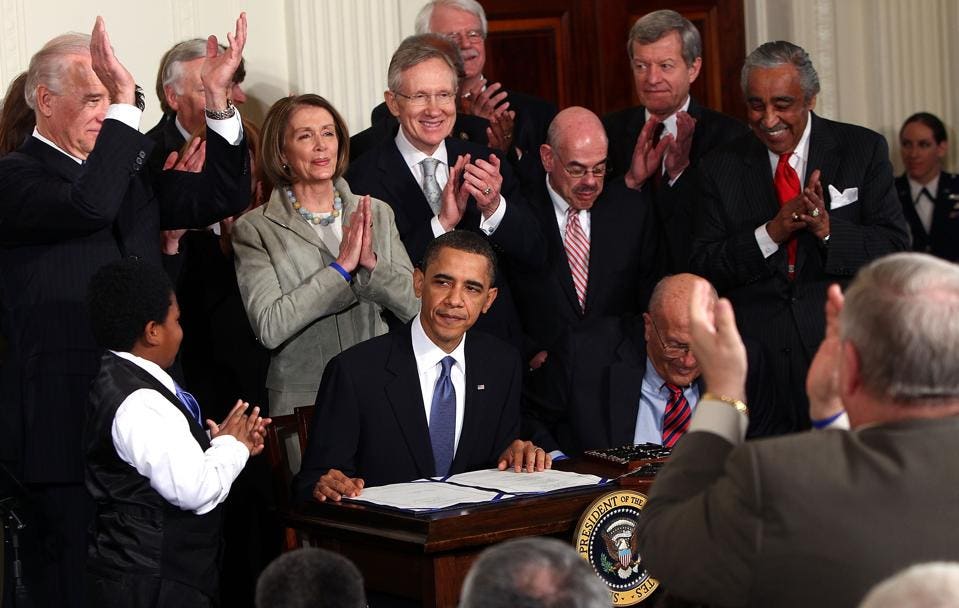
Obamacare Exchanges at Age Ten
March 23rd will mark the 14th anniversary of the Affordable Care Act, and it is now ten years since the creation of the Obamacare exchanges. There are three ways to look at Obamacare today: in terms of (1) what the Obama administration said it was about, (2) what policy wonks thought it was about, and (3) how it really works. More at my post at Forbes.

How to Reform Social Security
The key to reform is to make today’s retirees positive beneficiaries of reform.
A golden opportunity to do so exists for two reasons: (1) the current system is abusing senior retirees in myriad ways, and (2) many of these abuses can be eliminated without any cost to the Treasury. In other words, some aspects of responsible reform are a free lunch.
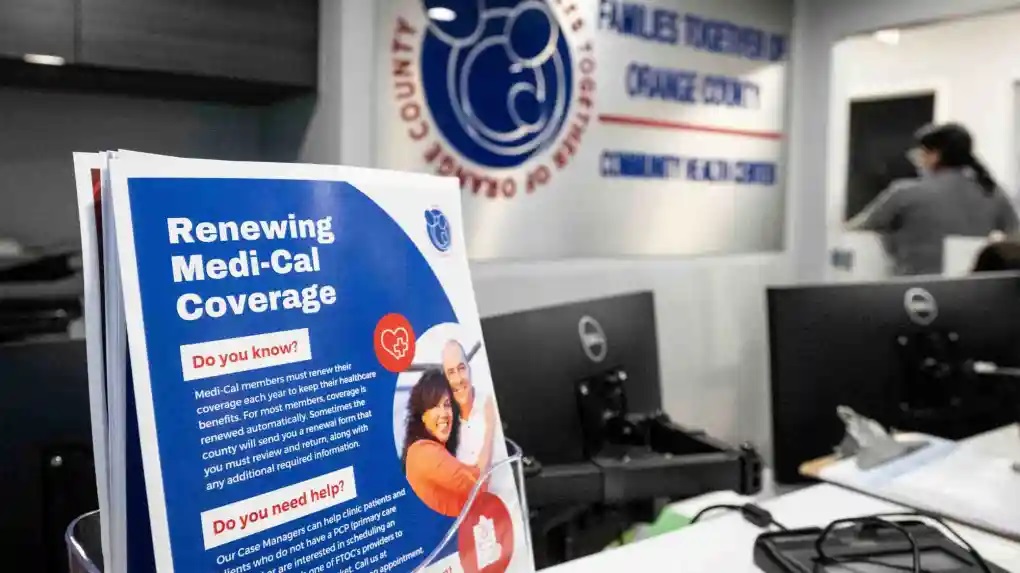
California Dreaming
California legislators want the state to provide free health care to every resident, including undocumented immigrants. Under the act, it would be illegal for any resident to pay a doctor privately for any medical treatment covered by CalCare. John Goodman and Linda Gorman predict higher taxes, less choice, an exodus of doctors and nurses out of the state, rationing by waiting, and something actually worse than Medicaid for all. See our editorial in the Orange County Register.

What’s Wrong with the US Welfare State?
The bottom fifth of households in 2017 had an average (after tax and after entitlement spending) income of $33,653 per person. Almost all of this “income” is in the form of noncash welfare benefits. If all those benefits were converted into cash, a family of four in the bottom fifth of the (earned) income distribution would have $134,652 a year to spend, after taxes! The bottom fifth also had more per capita “income” than the next fifth and the middle fifth. To answer the question, “What’s Wrong?” I really shouldn’t have to say anything more. But, I did find a few more things to say in my most recent post at Forbes.

What To Do About Our Biggest Health Care Problems
Short-term health insurance and indemnity insurance are meeting needs not met by Obamacare. You would appreciate why that is a good thing if you understand:
Goodman’s Rule for Rational Public Policy: Let the markets handle all the problems markets can solve; and turn to government only to meet needs that competitive markets cannot or do not meet.

Biden v. Medicare Advantage
When does the failure to answer a phone call in 8 seconds cost the company receiving the call $190 million? When the caller is a spy working for the agency that runs Medicare and the receiving entity is a private insurance company. More.

Two Cheers for the Bipartisan Tax Deal
A rare bipartisan agreement in Congress would create a larger child tax credit for parents and extend some key business tax breaks in the 2017 (Trump) tax reform bill that have expired. Democrats are said to favor the former and Republicans the latter.
Opinions on the accord are all over the map, with pros and cons – both on the right and the left. I give it two cheers. If it were funded by reducing means-tested welfare spending, I would give it a third cheer.

Do You Trust your Health Insurer?
Why do employers (including government employers) and insurers mistreat enrollees with costly health care problems? When the New York Times describes the abuses, you are encouraged to believe that the blame rests with private insurance. In fact, the source of the problem is perverse incentives created by bad government policies. More.

Medicare Spending Forecast
Bad as the Trustees Report is, the reality is likely to be ever worse.
Source: James Capretta, AEI

Why We Hate Each Other
When we were polarized in the past, there were arguments and (sometimes not so civil) debates over a major public policy issue. What are the major public policy issues that are dividing us today? I suggest that there aren’t any. What is driving a wedge between us today is tribalism – not government policy. More.

Social Security’s Massive Malfeasance
The Social Security administration has committed and continues to commit huge fraud against 13,000 plus widow(er)s who collectively have been swindled out of $130 million. These figures are those of Social Security’s own Inspector General. More
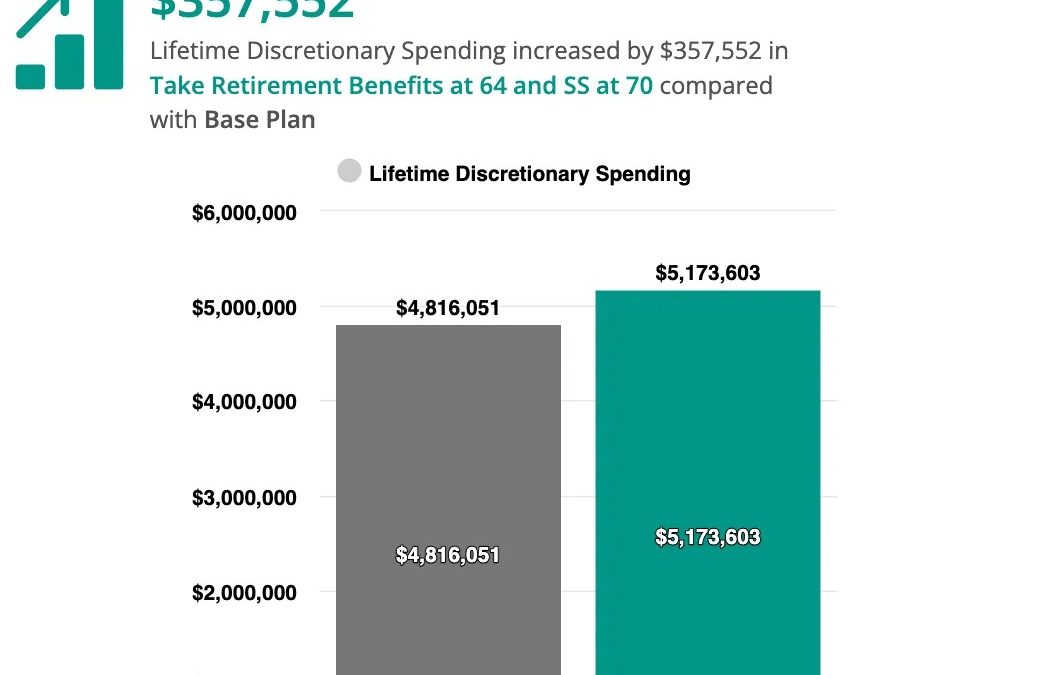
Should You Now Wait Till 75 To Take Your IRA?
The Secure 2.0 Act, which Wall Street loves, gives retirees the ability to defer taxable withdrawals from their IRA accounts from the current age 72 to 73 in 2023, if you reach 72 in that year or later, and to 75 starting in 2033. That may not be a good financial decision, however. More

Are US retirees foregoing large sums of Social Security benefits?
90% of Americans are likely to benefit if they wait until age 70 to claim their Social Security benefits. Yet only 6% do so. If you add up the loss of benefits from these decisions over the remainder of a retiree’s lifetime, the typical retiree is leaving $182,370 (in present-value terms) on the table by claiming benefits too soon. More

Social Security COLA Still Fails To Keep Up With Inflation
The COLA is supposed to keep our (I’m also a recipient) benefits even with inflation. Unfortunately, it doesn’t. The COLA is calculated based on the rise in the Consumer Price Index between September 30th and October 1st of the previous year. Hence, we’re getting compensated for past annual inflation, with a three-month lag to boot! This leaves us perpetually behind the eight ball. More

The US is a Waning Economic Superpower
The U.S. is a waning economic hegemon. But far too few Americans, including politicians, realize this. The eventual new and very big kid on the block is, under all but extreme scenarios, China; and, after China, India. By 2100, the U.S. will be in third place, when ranked by GDP — producing only 12 percent of global output compared with China’s 27 percent and India’s 16 percent. More

The Republicans Need Their Own Student Loan Reform. Here It Is.
President Biden just canceled a mother-load of student debt. The income limit for the President's largess is $125,000 for individual borrowers and $250,000 for married and heads of households. Those below these limits received up to $10,000 in debt forgiveness. And...

Finally, A Safe Way To Play The Market — Upside Investing
Upside Investing represents a revolution in investment/spending strategy. It lets you set a living standard floor that only rises as a result of investing in stocks and other risky assets. The higher your floor, the lower your upside and vice versa.
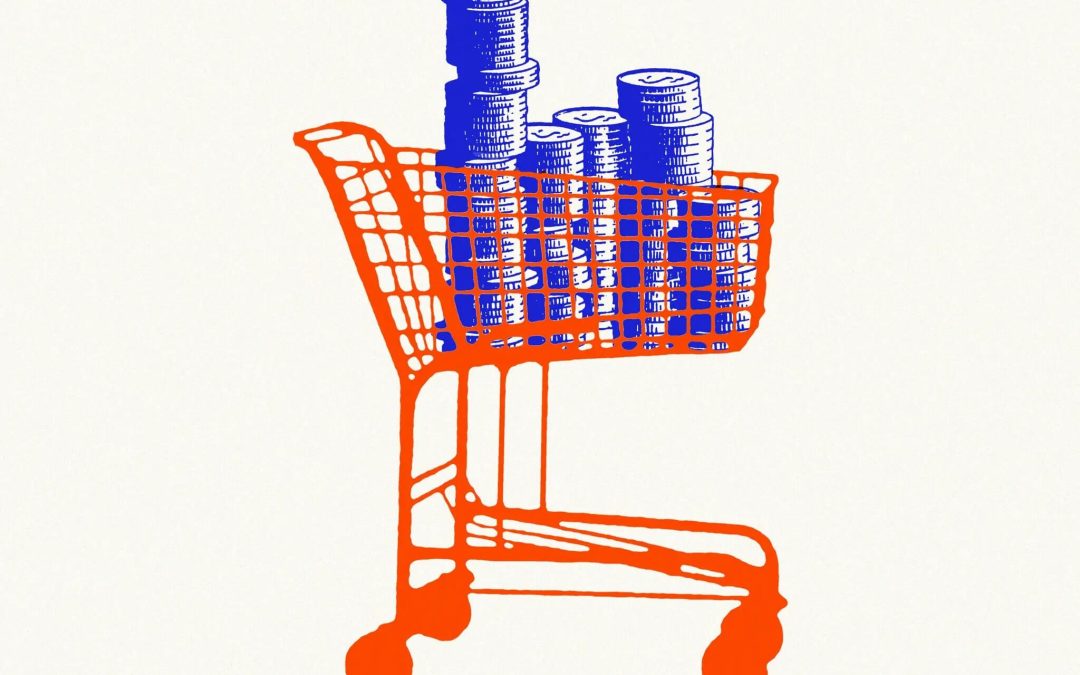
Inequality has been Greatly Exaggerated
A new study by Goodman Institute Senior Fellow Laurence Kotlikoff and his colleagues says that middle-aged families in the top fifth of the income distribution have almost 200 times the wealth of families in the bottom fifth. But after taxes and entitlement transfers, the difference in lifetime spending power is only 7.5 to 1. Our fiscal system is far more progressive than critics like to admit. See the New York Times description and the technical paper.

Social Security Sues invalid for Money He Received 21 Years Ago, At Age 11
Roy Farmer of Grand Rapids Michigan has Cerebral Palsy. He’s 32. In 2019, out of the blue, he received a claw back letter from Social Security demanding he repay $4,902 that his (now deceased) mother received back when he was 11. Roy has spent over three years appealing this judgement. He’s been denied twice. More from Kotlikoff Forbes editorial.
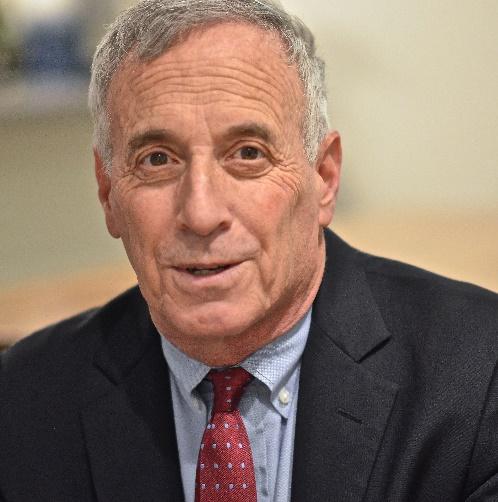
Our Fiscal System Needs Reform
Over half of working-age Americans face lifetime marginal tax rates (including direct taxes and loss of entitlement benefits) above 43 percent. One in ten in the bottom fifth face tax rates above 70 percent, effectively locking them into poverty. For some would-be-workers, the tax rates exceed 100 percent.
Extremely high LMTRs reflect the complete loss of family benefits, in the current and future years, from programs such as Medicaid – which ends benefits abruptly if one’s income or assets exceed specific thresholds by even one dollar. More.

ObamaCare still desperately needs fixing
The American Rescue Plan injects new life into ObamaCare with more generous subsidies, expanded eligibility and premium limits that make insurance more affordable. Unfortunately, the stimulus proposal just passed by Congress does nothing to correct the most serious...

What’s Wrong with Planting More Trees?
Planting trees to sequester carbon and prevent carbon dioxide emissions has become very popular (whether it is accomplishing much or not). Now the New York Times reports that the effort to save the world is causing local ecological harm by bringing in non-native species.

Don’t Worry about Greenland’s Melting Ice
Greenland ‘s ice mass is melting—but more slowly than it did a decade ago, and its level right now is about the same as in the 1930s. But little of this information reaches the media or even the reports of the Intergovernmental Panel on Climate Change (IPCC)…

Laws, Sausages, and Land-Grants
The agricultural and technical university, which often has “state” in its name, is typically a land-grant university formed under the auspices of the Morrill Act of 1862. It was meant to be a practical, down-to-earth “people’s university,” and even today it is less prestigious than the state’s traditional university, usually founded much earlier. But the emphasis on technology has made some of the land-grant universities research powerhouses and often bigger than their in-state rivals.

The Case for Retirement Communities
A retirement home has some resemblance to a college dorm. But that’s a good thing. Unlike a typical apartment complex, where one rarely knows one’s neighbors, a retirement home allows meeting many people—at meals, exercise classes, lectures and clubs.

Student Loans: A ‘National Catastrophe’
Review of The Debt Trap: How Student Loans Became a National Catastrophe, by Josh Mitchell (New York: Simon & Schuster, 2021) 261 pp.

Going Against the Grain
In 1973, John Baden and Richard Stroup proposed selling off the U. S. Forest Service to private owners, some nonprofit and some for-profit. In an article in the Journal of Law and Economics, they argued that commercial timber would be better managed by private companies, and non-profit organizations like the Sierra Club could protect the important environmental areas.

Economic Growth Theories Fall into the Dustbin of History (And That’s Okay)
Economists like Samuelson failed to understand economic growth in developing countries. Unbeknownst to them, cost-reducing innovations in transportation and communication led to increased trade and lifted people out of poverty. The Industrial Revolution benefited only a small portion of the world. Trade spurred prosperity and development on its own.

Conservation Leases?
This guest post by Shawn Regan is a substantive analysis of the recent proposal by the Interior Department's Bureau of Land Management to allow leasing of public land for conservation purposes. Regan is vice president of research at the Property and Environment...

More Important Than the Industrial Revolution
It’s called the Transportation-Communication Revolution. In recent times, shipping costs have fallen by 50 percent and air cargo costs have fallen by almost 100 percent. As a result, the per capita GDP of developing countries (outside of sub-Saharan Africa) between 1960 and 2015 rose a whopping 549 percent.
No Results Found
The page you requested could not be found. Try refining your search, or use the navigation above to locate the post.
No Results Found
The page you requested could not be found. Try refining your search, or use the navigation above to locate the post.

Gramm and Saving in the Wall Street Journal: Fed Task is Precarious
The Fed balance sheet contains 20% of all publicly held federal debt and 34% of the value of all outstanding government-guaranteed mortgage-backed securities. As the economy returns to normal growth, getting rid of those assets risks runaway inflation or a crippled recovery or both.

Saving: Are Republicans Too Stingy with Medicaid?
Before the Senate voted on a “skinny” alternative to Obamacare, it was considering the House version of repeal and replace – called the Better Care Reconciliation Act (BCRA).

Saving and Gramm in the Wall Street Journal: The Fed’s Obama-Era Hangover
The Federal Reserve System is paying banks not to lend money under an Obama era policy.
No Results Found
The page you requested could not be found. Try refining your search, or use the navigation above to locate the post.
No Results Found
The page you requested could not be found. Try refining your search, or use the navigation above to locate the post.

Herrick: OBAMACARE RATIONS CARE FOR THE SICK AND OVERCHARGES THE HEALTHY
The health care reform debate that lead to Obamacare was initially about covering the uninsured, but in order to gain the support of ordinary people who already had coverage, proponents had to figure out a way to sway public opinion.

Herrick: States Should Ban These Lab Scams
There is a new health care scam spreading across rural America that could cost you plenty. Large commercial labs like Quest Diagnostics and LabCorp do not have locations in every small town. As a result, many rural hospitals perform lab work for both their inpatients and outpatients in the local community.

Correcting Misconceptions of Health Care Reform
One reader posed the question, how does the tax break for employee health insurance harm our health care system? Short answer: over time the practice reduced competition, which weakened cost-control and resulted in health care inflation three times that of consumer inflation. Consider this: once covered by generous health plans, workers cared less about what medical care cost because their health plans paid most of the tab. Employers didn’t care what things cost because they were passing on the costs to workers (indirectly) in lieu of higher cash wages. Third party administrators (TPAs), who manage the benefits for employers, didn’t much care what things cost because they were passing on the costs to employers with a mark-up. The more money spent, the more TPAs earn.
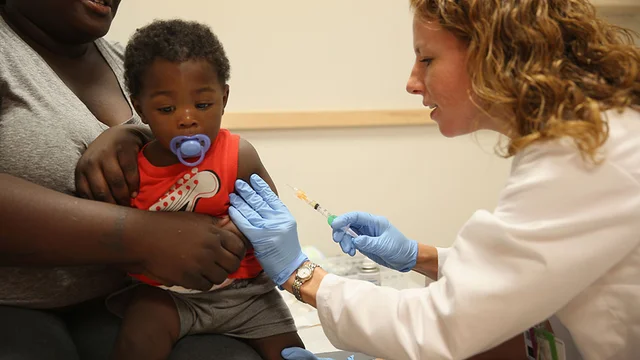
Gorman in The Hill: States are bilking Uncle Sam with Medicaid scams
Congress has decided to stop forcing federal taxpayers to subsidize people who live under state governments intent on levying excessive income taxes. Now, how about ending federal subsidies rewarding states that tax the heck out of health care?
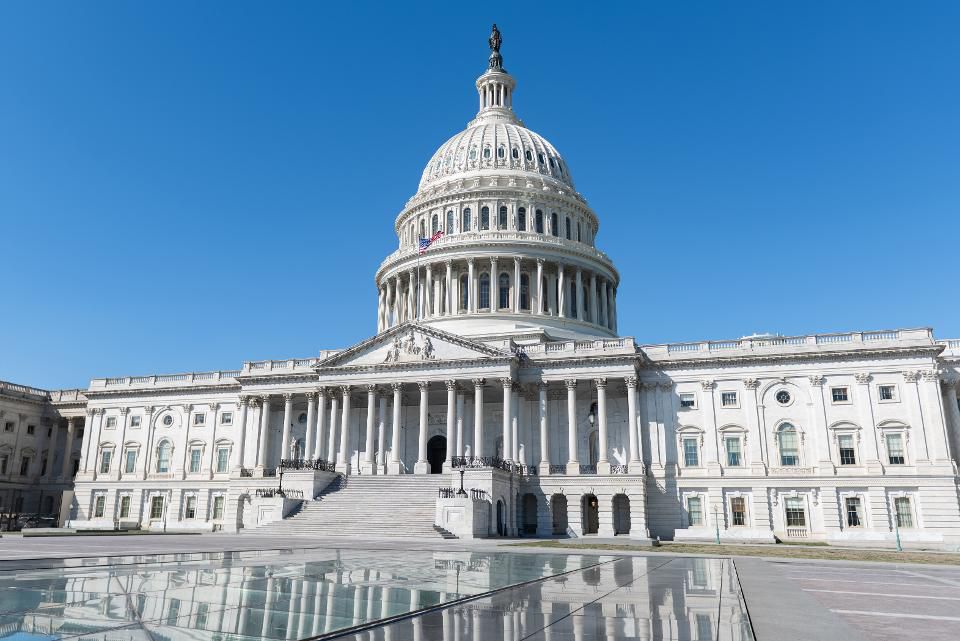
Congress Could Improve Health Care by Reforming the False Claims Act
In a new Independence Institute working paper on the use and misuse of the False Claims Act (FCA), attorneys Mark W. Pearlstein and Laura McLane explain how an 1863 statute written to expose and punish Civil War contractors who billed for gunpowder and supplied kegs full of sawdust raises costs and threatens access to medical care.

Foreign Health Care is No Model for the United States
Repealing ObamaCare would produce better outcomes for patients, those who care for them, and those who pay their bills.

ObamaCare is a success — at sucking vast sums of money from the private sector
In Washington, the healthcare debate isn’t about rescuing the people in the individual insurance market from ObamaCare’s high premiums and poor coverage. Nor is it about improving patient welfare, or reducing medical costs. It’s about using the “coverage for all” mantra to suck huge sums of money out of the private sector with ObamaCare taxes, premiums, and regulations.

Gorman: We can cover those with pre-existing conditions without Obamacare
There are many ways to provide medical care for people with pre-existing conditions. Real world experience shows that some work better than others. Properly structured stand-alone high risk pools and medically underwritten individual health policies guaranteed coverage for more than a decade before ObamaCare.

Individual Insurance Buyers Were Better Off Without Obamacare
Obamacare’s destruction of the individual health insurance market has done enormous damage to the lives and finances of millions of people who purchase their own insurance.

ObamaCare has Failed Patients with Pre-Existing Conditions
There are many ways to provide medical care for people with pre-existing conditions. Real world experience shows that some work better than others.

ObamaCare has failed patients with pre-existing conditions
There are many ways to provide medical care for people with pre-existing conditions. Real world experience shows that some work better than others.

If The Court Strikes Down Obamacare, How Bad Would That Be?
This article was coauthored by Linda Gorman, director of health care at the Independence Institute in Denver, Colorado.

Gorman in The Hill: Trump’s Drug Plan Wrong Rx
The Trump administration wants to use an average of the drug prices paid by other countries to limit what Medicare Part B pays for some drugs. This is a bad idea.

Hidden Traps in the IRA Bill’s Drug Provisions
In the near future, the elderly and the disabled will face a double whammy: higher premiums for Part D drug insurance and higher prices at the pharmacy. This is on top of negotiated prices (and the consequent drop in new drug production) which will kick in later in the decade.
John Goodman and Linda Gorman explain why this will happen in The Hill.

Make Government Less Taxing
Our returns don't have to be this unhappy. Commentary by Pete du Pont April 26, 2013 Source: The Wall Street Journal Americans don't like things that are inefficient, costly or unfair. Our federal tax code seems designed to be all three, a failing exacerbated by a...

Peace Through Strength: Still a Good Idea
Has Obama overcome his foreign policy naiveté? Commentary by Pete du Pont March 29, 2013 Source: The Wall Street Journal The domestic policies of the Obama administration evince a lack of understanding and experience in how an economy functions and grows. Things are...

The Democratic Majority Is Doomed
The entitlement mentality can't survive a weak economy. Commentary by Pete du Pont March 01, 2013 Source: Wall Street Journal Many argue the coalition that elected and re-elected Barack Obama represents a long-term shift in the electorate that will determine...

Big Bird Should Leave the Nest.
Romney was right about public broadcasting. Commentary by Pete du Pont January 31, 2013 Source: Wall Street Journal It's time to end the federal subsidy for public broadcasting. Doing so now would be good for President Obama, Congress and the American taxpayers. And,...

Focus on Fundamentals
The current economic debate is an exercise in missing the point. Commentary by Pete du Pont December 30, 2012 Source: Wall Street Journal "If we're going to raise revenue and if we're going to raise it in any form, then we darn well better cut spending, because...

Hello, Europe
On its current trajectory, America will look like France or Greece before long. Commentary by Pete du Pont November 22, 2012 Source: Wall Street Journal The election is behind us, with President Obama's strong victory over Mitt Romney. Mr. Obama did not do as well...

Will America Abandon ‘Hope’?
As the election approaches, most voters think the country is on the wrong track. Commentary by Pete du Pont July 29, 2012 Source: The Wall Street Journal The presidential campaign remains very close, but some of the polling information must continue to cause alarm in...

Class Struggle
On education, there are big differences between Obama and Romney. Commentary by Pete du Pont June 27, 2012 Source: The Wall Street Journal Much has been written about the choice we face just 19 weeks from now, when we will select the next president. But while we...

Hillary Will Run
How could she not? Commentary by Pete du Pont October 29, 2013 Source: Wall Street Journal Hillary Clinton is going to run for president in 2016. Granted, she is exhibiting even more coyness than most presidential prospects, and yes, the media are filled with those...

The Beltway Stalemate
Democrats and Republicans have never had such a conflict of visions. Commentary by Pete du Pont September 26, 2013 Source: The Wall Street Journal The debate about military action in Syria seems over for now, and Washington is back in campaign mode. We have a...

Global Warming Heats Up
The public could use an honest debate. Commentary by Pete du Pont February 27, 2014 Source: The Wall Street Journal Global warming is back. Not actual global warming, as the decadelong trend of little to no increase in temperatures continues. But the topic of global...

Dueling: A Gentleman’s Duty or a Nasty Habit?
A recent scholarly paper perused two newspapers (the New York Times and the Richmond Daily Dispatch) for duels reported between 1861 and 1865. They found 130 duels (over just five years!). Of these 130 duels, they write, “71 involve prominent figures, which we define as politicians, military officers with rank of at least colonel (Army) or captain (Navy), and other well-known private citizens.”[2]
Read the original article (and view the notes) on janetakesonhistory.org

Charlotte Hawkins Brown: Education under Difficulties
The year 1901 was not a promising time for Charlotte Hawkins Brown, a young black woman, to return to her native North Carolina and teach in a mission school. White supremacists had overthrown North Carolina’s Fusionist government in 1900. The new governor was proud of the amendment to the state constitution that had “the deliberate purpose of depriving the negro of the right to vote, and of allowing every white man to retain that right.” Schools were separate and unequal in spite of the 1896 Supreme Court decision that said they could be separate if they were equal.

Identity Politics Explained
Racism is the lowest form of collectivism. Ayn Rand once called it “barnyard collectivism.” Throughout history, it has usually been the handmaiden of every other form of collectivism. In the modern world, collectivists are no longer able to make a serious argument for economic collectivism (socialism, fascism, communism, etc.) So, they have resorted to identity politics instead. More.

What Does the Left Have Against Au Pairs?
Au pairs represent a potential solution to two huge problems: the high cost of child care and the high cost of elder care. Young European women get free room and board, some spending money and a chance to experience America. So why does the Biden administration want to price them out of the market? More.

Is There a Trump Health Care Plan?
Although he rarely talks about it, the most significant gift Donald Trump bequeathed to economic prosperity was deregulation. And the one sector that was deregulated more than any other was health care. Since Joe Biden has been re-regulating the economy, it’s hard to think of a starker contrast between the two leading presidential candidates this year – and it affects all aspects of health care. More

Liberalism Explained
In the early 20th century, they called themselves “progressives.” Then, they were “liberals.” Now they are “progressives” again. Early on, they embraced racism and endorsed eugenics. Then they became advocates for civil rights. Now they endorse racism of a different sort – wokeness. If you had to the describe the distinguishing characteristic of modern liberalism, what would your answer be? John Goodman gives a novel answer. More

Social Security Reform, Part II
To get seniors to support Social Security reform, there are additional abuses that need correcting. These include: stopping the double taxation of senior income through the Social Security benefits tax, no longer forcing seniors to dissave, abolishing the Social Security earnings penalty, and ending taxation by inflation. More

Obamacare Exchanges at Age Ten
March 23rd will mark the 14th anniversary of the Affordable Care Act, and it is now ten years since the creation of the Obamacare exchanges. There are three ways to look at Obamacare today: in terms of (1) what the Obama administration said it was about, (2) what policy wonks thought it was about, and (3) how it really works. More at my post at Forbes.

Common Sense as Health Policy
America is thought to have a market economy. Yet it is striking to consider all of the ways our health-care system prevents the market from solving our health-care problems.
Since most of the restrictions were created by Democratic legislation, it is tempting to view the liberation of health care as a Republican project. But there is no reason that it couldn’t be bipartisan. Here are several principles to guide reform.

The Inflation Tax
With 10% inflation, the average family can expect to lose 7% of its lifetime income to government.
This is the startling conclusion of a first-ever study by Laurance Kotlikoff and Alan Auerbach and their colleagues. The sources of the loss: (1) large parts of the tax code are not inflation indexed, (2) those parts that are indexed are indexed with a lag, and (3) Social Security benefits and other entitlements are also indexed with a lag. Our fiscal system is so incredibly complex that it has been impossible to measure the overall effects of inflation before now. Given the 20 largest federal/state entitlements, all administered differently by 50 states, that gives us 1,000 fiscal systems– to say nothing of all the different tax regimes. Hats off to the economists who spent several years developing the model that could give us a reliable answer. See John Goodman’s explanation of the study at Forbes.

Why We Hate Each Other
When we were polarized in the past, there were arguments and (sometimes not so civil) debates over a major public policy issue. What are the major public policy issues that are dividing us today? I suggest that there aren’t any. What is driving a wedge between us today is tribalism – not government policy. More.